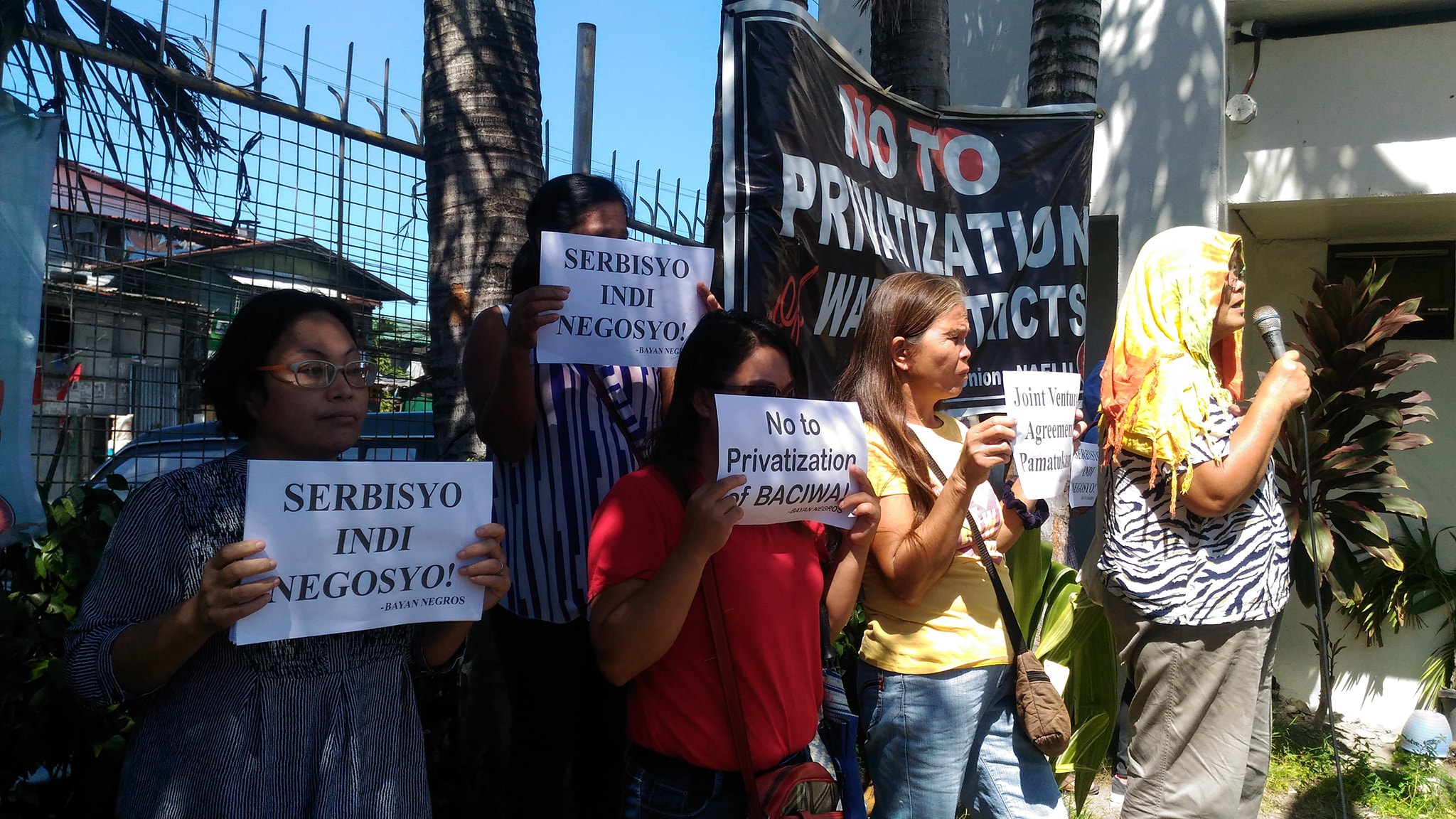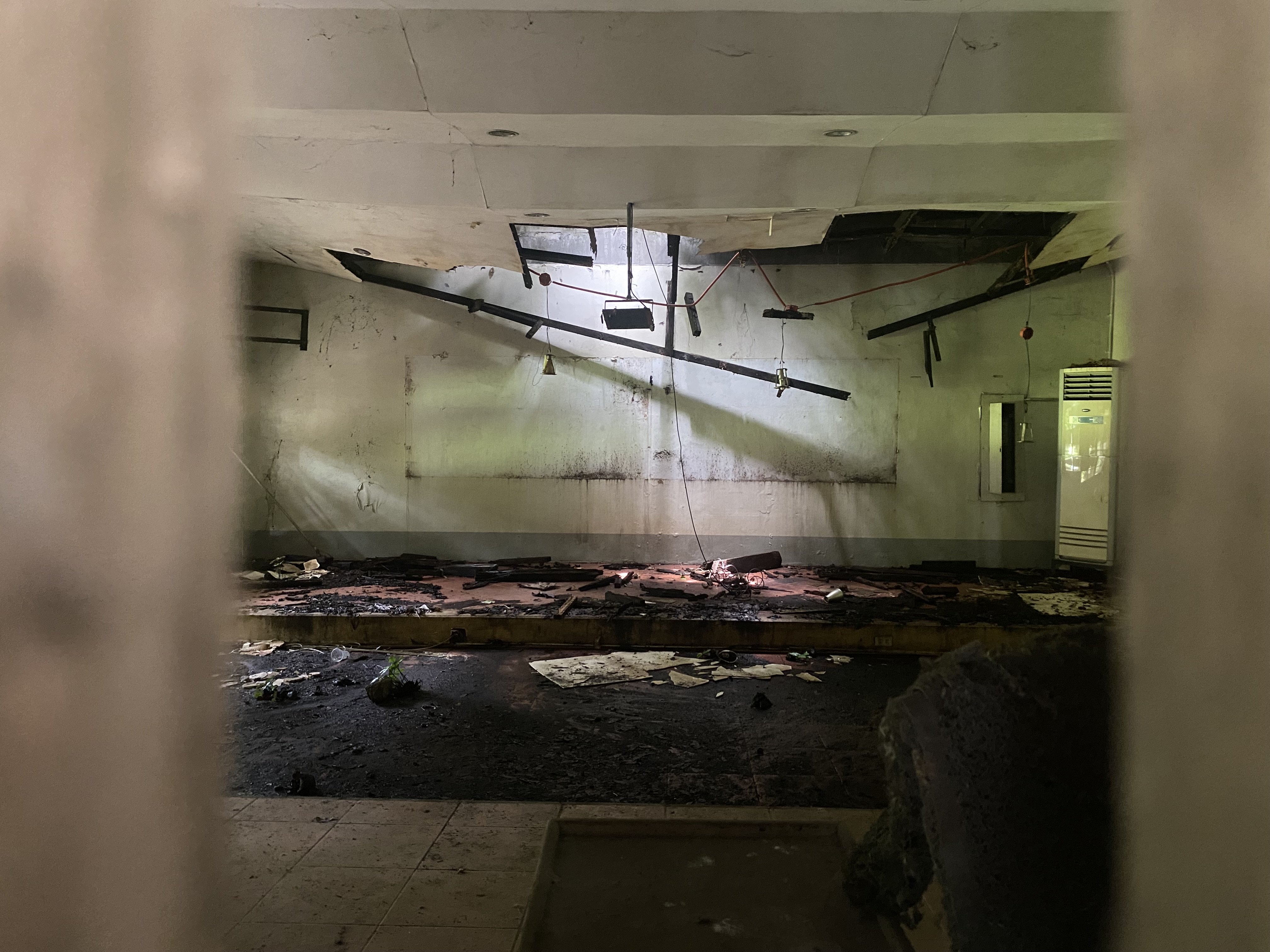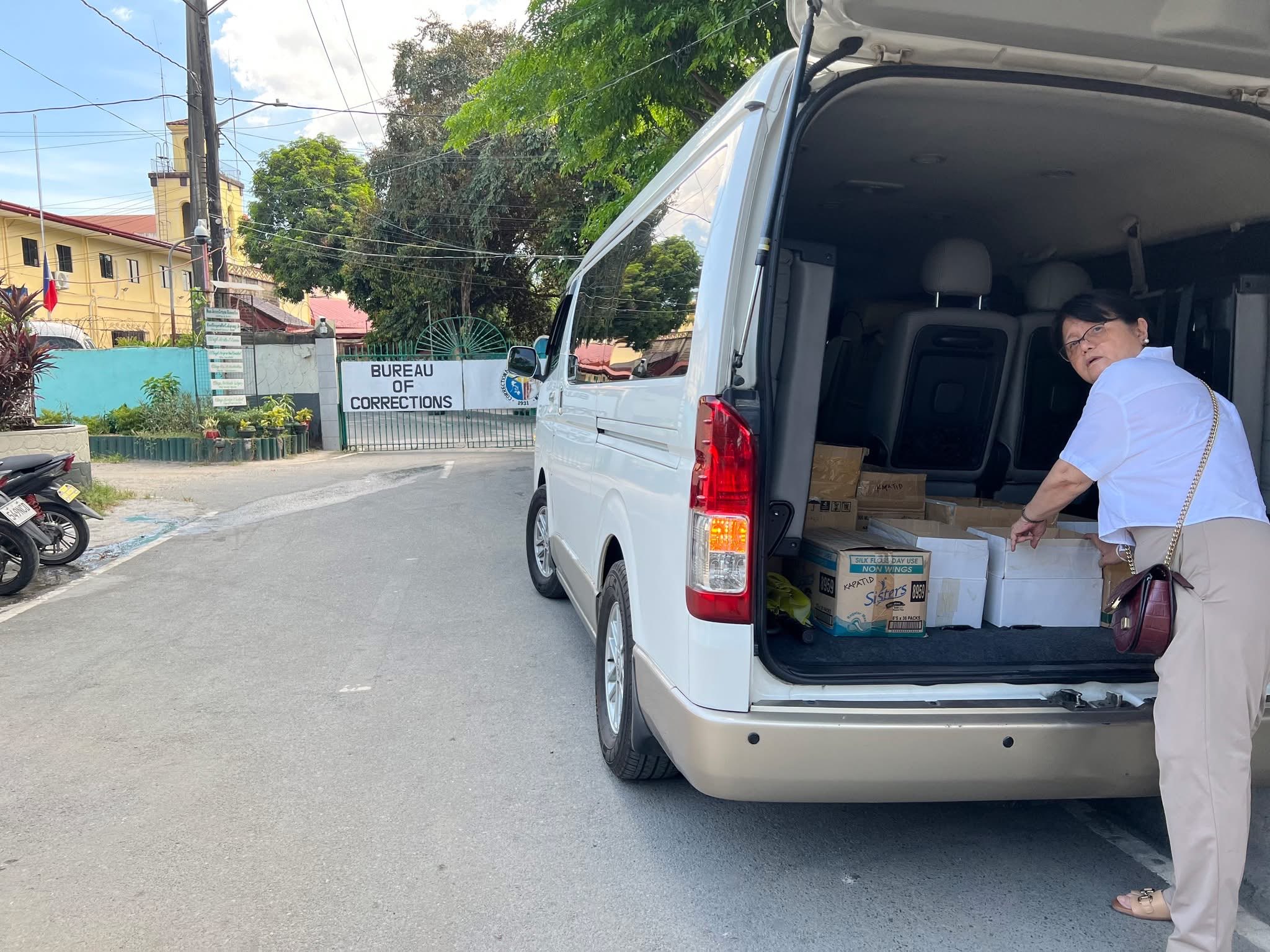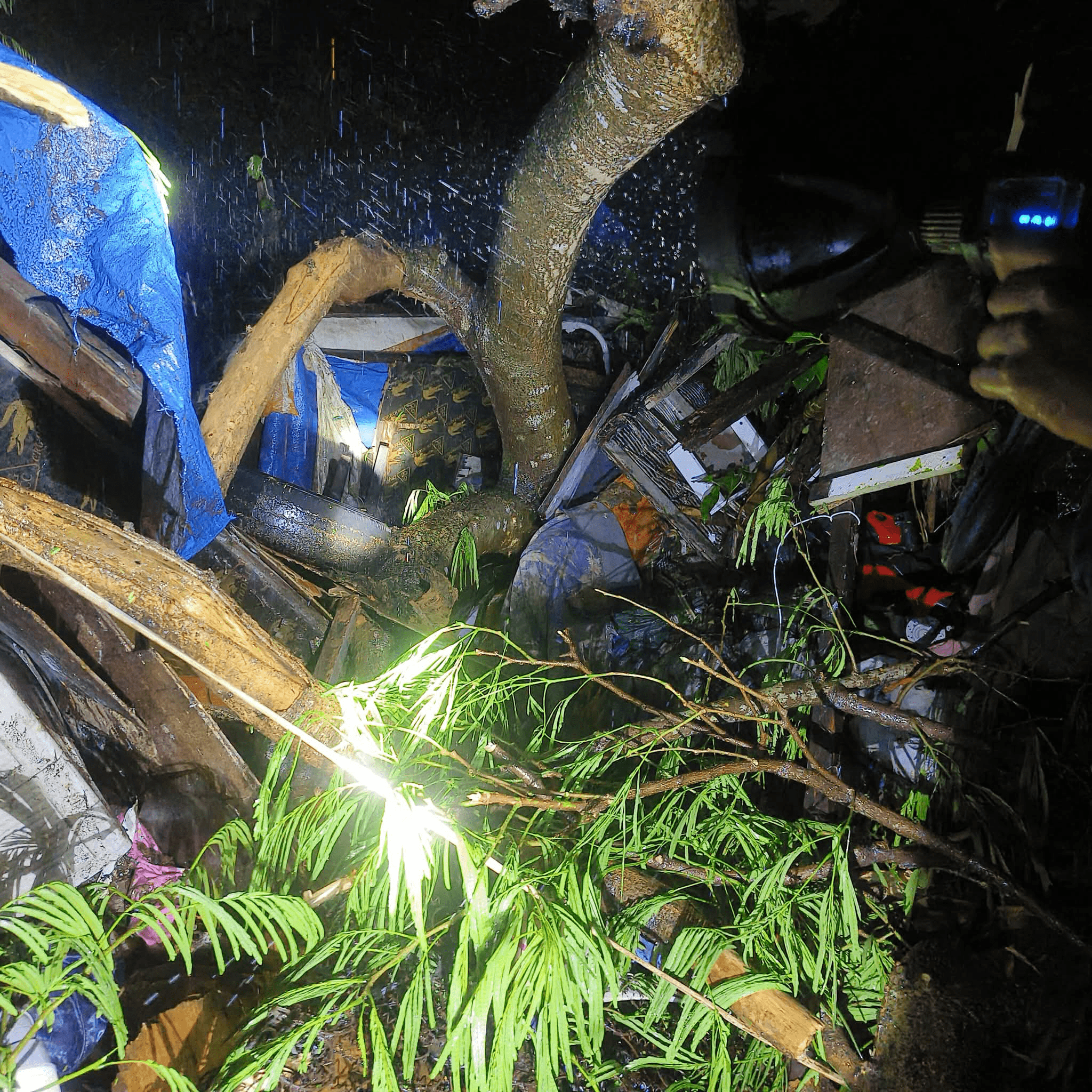From working as an engineer at the Bacolod City Water District (BACIWA), Iden Villaruz, 45, now spends most of her day braving the heat of the sun as a delivery rider, while also managing her small eatery. This has been her daily routine since she was terminated from BACIWA last year.
Villaruz now has no choice but to do any kind of sideline job, as she, along with the other 400 BACIWA employees, lost their jobs after the management declared their positions as “redundant.”
“Masakit ma-realize na sa isang iglap, mababalewala lang lahat ng mga efforts ko at ang mga paghihirap ko bilang isang government servant for more than 14 years,” Villaruz said. “Nakakagalit din dahil tinanggalan kami ng karapatan bilang isang manggagawa base lamang sa isang kontrata o papel na pinirmahan ng BACIWA at ng PrimeWater.”
Last July 2020, BACIWA joined 63 other water districts in the country that inked a 25-year joint venture agreement (JVA) with the Villar-owned PrimeWater Infrastructure Corp. As part of the agreement, BACIWA will lend its existing facilities to PrimeWater as the private water firm would now oversee the local water district.
PrimeWater claimed that the partnership would improve BACIWA’s services to 60,000 households in Bacolod City. However, the JVA has only resulted in a mass termination of workers and has failed to deliver its promise of better services to their consumers, said Leny Espina, president of BACIWA Employees’ Union.
Illegal Dismissal
In December 2020, the BACIWA management issued a resolution terminating 400 employees despite an earlier reassurance from BACIWA Board Chairman Lorendo Dilag that the JVA would not jeopardize employees’ job security. Only 20 workers were retained as part of the Contract Monitoring Unit, which is tasked to ensure that PrimeWater would meet the conditions of the JVA.
PrimeWater offered two options to their former employees: retire early or apply in the available positions at the private water firm. However, 60 employees, including Villaruz, chose to file a complaint. For them, the management cannot just fire permanent government employees because of a mere partnership.
“Pinaniwala nila yung ibang mga empleyado na dalawa lang yung option namin, when supposed to be may third option pa, which is i-retain kami sa trabaho kahit may partnership with the private sector dahil protektado kami ng Civil Service Law,” said Villaruz, who is one of those complainants. “Akala siguro nila, hindi na kami lalaban.”
In August 2021, the Civil Service Commission (CSC) Region 6 ruled in favor of the workers, ordering BACIWA to reinstate and pay the wages of the employees since their illegal termination. The regional office would later junk the appeal filed by BACIWA officials after their failure to provide additional evidence that reorganization of its workforce was necessary.
But pending the appeal of the regional office’s decision to the CSC central office, Villaluz and other illegally dismissed employees will remain without a job.
“Kaya siguro ayaw na nila kaming pabalikin kasi natatakot sila na kapag naging parte kami ng contract monitoring namin, mapuna namin na hindi nafu-fulfill ng PrimeWater yung nasa kontrata, at hindi niya nama-maintain yung quality ng serbisyo before the joint venture,” Villaruz said.
Rising Costs
Since PrimeWater has taken over BACIWA, Bacolod consumers shared their frustration online over the “coffee-colored” water flowing out of their faucets and the frequent water interruptions that sometimes last for hours.
And while BACIWA officials are still insisting that the water district has not been privatized, consumers are now paying a 12-percent value-added tax on top of their monthly water bill. BACIWA’s minimum monthly charge of P208 jumped to P233 after the JVA.
The fact that private companies, such as PrimeWater, are now aggressively taking over the local water districts across the country is concerning, Espina said, pointing out that privatization ignores the welfare of both the water district’s employees and consumers for the sake of profit.
“Sa pagkuha ng water districts, madali ang kita [dahil] nandyan na yung facilities, tapos kung may katiting mang investment, mababawi agad ng mga Villar iyon,” Espina said. “Kaya pag patuloy yung privatization, panalo ang mga negosyante kasi dahil sa kagustuhan nilang kumita, mada-divert yung burden sa aming mga manggagawa at mga consumer.”
The passage of the National Water Crisis Act under the Ramos administration paved the way for the privatization of water utilities in the Philippines, beginning in Metro Manila. Hoping that privatization will help mitigate the water crisis in the 1990s, the Metropolitan Waterworks and Sewerage System (MWSS), in 1997, awarded a 25-year joint venture agreement to water concessionaires Manila Water and Maynilad.
Two decades since, Metro Manila now has the fourth most expensive water rate in Asia, higher than in other highly-urbanized cities such as Hong Kong, Beijing, and Seoul, based on a 2013 study of the Japan External Trade Organization.
In fact, the cost of water in Metro Manila climbed by 879 percent from 1997 to 2019, according to the advocacy group Water for the People Network, amid the persistent water interruptions that have affected 52,000 households in the region. And, in 2019 alone, Manila Water and Maynilad earned a combined net profit of P13.3 billion.
Despite the failure of privatization to mitigate the water crisis, think-tank group IBON pointed out that the previous Aquino administration has even institutionalized the public-private partnership scheme, which opened an opportunity for big companies to control water districts in the provinces.
Instead of resorting to privatization, IBON Executive Director Sonny Africa urged the government to intervene in the water sector to ensure that public interest will be prioritized over profit. Reverting the control of basic utilities back to the public, Africa said, will help the government improve the delivery of its services.
Questionable Deals
While President Rodrigo Duterte branded himself as an anti-oligarch, his close allies and campaign donors such as the Villars, Dennis Uy, and Ramon Ang were actually able to snag water supply and distribution project contracts during his term, an IBON report showed.
Duterte even suggested that Villar’s PrimeWater can take over the water supply in Metro Manila after threatening, last 2020, the cancellation of Manila Water and Maynilad’s contracts with the government. The president, however, eventually renewed the 25-year franchise of Manila Water and Maynilad on December 10, 2021, effectively maintaining the private control of water service in Metro Manila.
“Yun kasing mga negosyante, sila-sila rin naman yung nasa gobyerno, kaya di na rin kami nagtataka kung yung PrimeWater ay napapaboran pagdating sa mga joint venture kasi malakas talaga yung impluwensiya ng Villar ngayon sa pulitika.” Villaruz said.
Aside from PrimeWater, Manny Pangilinan’s Metro Pacific Water and Lucio Tan’s MacroAsia Corp. have been signing JVAs with local water districts. This trend of privatizing water utilities prompted Makabayan Bloc lawmakers to file House Bill 7962 last November 2020, seeking to prohibit and penalize the privatization of water utilities. The bill, still pending at the committee level, would cancel all the existing JVAs in local water districts.
Consumer welfare group Amlig Tubig also sought to void BACIWA’s privatization last October 2020 when it filed a petition before a trial court to throw out the JVA. While the lower court dismissed the suit due to technicality, the group decided to appeal the decision in the Court of Appeals after the Commission on Audit (COA) found deficiencies in the JVA. The appeals court has yet to release its decision on the appeal.
In its 2020 audit report, COA said that due to BACIWA’s failure to provide a prefeasibility study of the project, a requirement before a JVA may begin, the water district could not determine whether entering a partnership with PrimeWater is necessary in the first place.
“Nakikipagtulungan kami sa Amlig Tubig kasi naniniwala kami na inalis [nung JVA] yung responsibility o essence ng isang local water district, which is to deliver public service,” Espina said, adding that the employees’ union continues to conduct dialogues with the communities to gather public support for their lawsuit.
Villaruz still hopes that they can return to their jobs in BACIWA as soon as possible. But for now, she continues to join the union’s campaigns for their job security and against water privatization even though she has almost no time to spare juggling her multiple sidelines.
“Yung laban naman namin ay hindi lang tungkol sa seguridad ng aming trabaho,” Villaruz said. “Bilang government employees, mandato rin naming protektahan yung interes ng publiko, kaya patuloy din kaming maninindigan laban sa privatization ng BACIWA.” ●







